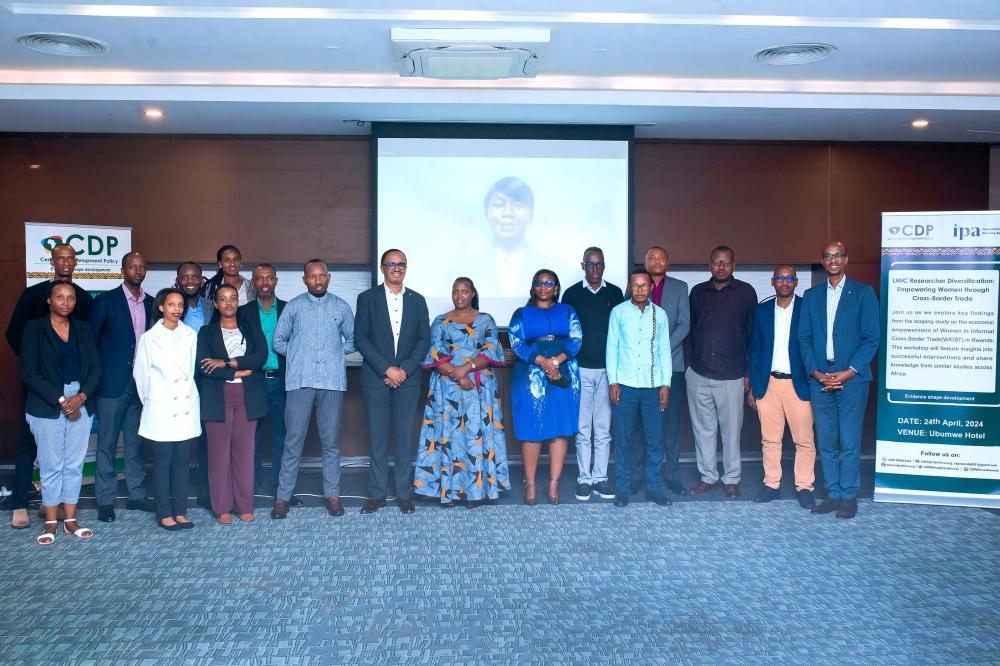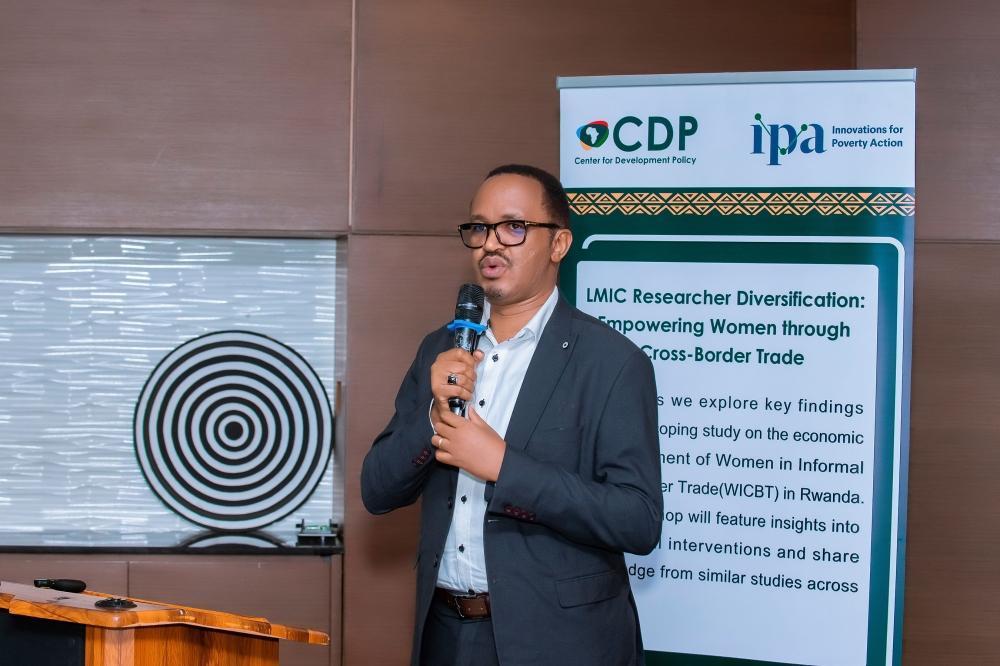Africa-Press – Rwanda. 80% of Rwanda’s cross-border trade is estimated to be small-scale, unrecorded, informal, and cross-border. This reflects the potential that informal trade has towards the country’s economy.
However, lack of enough data in the informal sector complicates the efforts aimed at transforming cross border trade, a report by the Center for Development Policy (CDP) and Innovation for Poverty Actions (IPA) indicates.
The report aims to map out current interventions and how to support women’s economic empowerment in Rwanda’s informal cross-border trade.
Center for Development Policy is a pan-African and non-partisan think tank headquartered in Rwanda. Through policy analysis and capacity building, it aims to support the development of African nations.
Vincent Safari interacts with participants on the untapped potential of cross border trade
According to CDP, in order to promote overall economic development, African governments are becoming more and more dedicated to regional integration and trade liberalization.
This is based on the conviction that cross border trade has the ability to improve welfare, raise incomes, and promote inclusive development throughout Africa.
Intraregional trade within Africa is still minimal compared to other regions. Only 14.4 % of all African exports in 2023 came from intra-African trade, this is found in a research done by the center development policy.
According to the United Nations Conference on Trade and Development (UNCTAD) projections, the African Continental Free Trade Area (AfCFTA) might increase intra-African trade by roughly 33 % and reduce the continent’s trade deficit by 51%.
Cassien Havugimana,Deputy Country Director Rwanda &Uganda IPA speaks at the workshop in Kigali on April 26
The founder and president of CDP,Eduard Kadozi, said there is a need to deliberately address challenges that cross border traders face, particularly women who engage in cross border trade, if Rwanda wants to enjoy full benefits from cross-border trade.
“We need to find ways in which we can enhance cross border trade. This can be done through carrying out focused and tailored interventions that truly address the needs of traders such as building capacity of women traders,” he said.
Harnessing informal trade
Africa’s cross border trade is significantly high. Cross border small-scale transactions make up between 30per percent to 40 percent of all regional trade in Sub-Saharan Africa.
In Rwanda, the majority of trade is conducted across the border, largely with the Democratic Republic of Congo (DRC).
Rwanda exports to DR Congo mainly agricultural goods like fruits, vegetables, fish, legumes, fisheries, and manufactured goods like plastics, rice, salt, condiments, and flours made from maize and cassava.
Trade in high-value commodities (livestock and industrial commodities) is dominated by men rather than women, while more products from agriculture are traded by women, the report shows.
According to Kadozi, their report sheds light on the challenges that women who trade across the borders face, and propose interventions that can guide future policy decisions and strategies aimed at transforming their lives.
Dr Eduard Kadozi during the workshop
For More News And Analysis About Rwanda Follow Africa-Press









